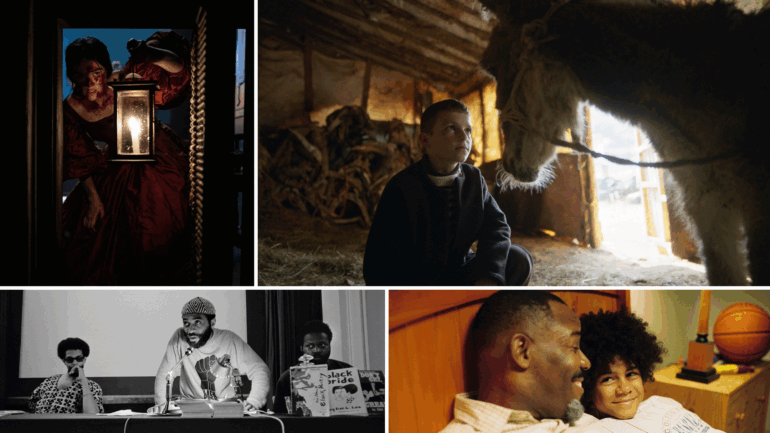The 61st Chicago International Film Festival hits theaters across the city October 15–26, 2025, with more than 100 features and 11 shorts from 70 countries. This year’s lineup spans genres and geographies — from gripping dramas and heartwarming comedies to documentaries that shine a light on urgent global issues.
For Artistic Director Mimi Plauché, the festival is defined by its twin commitments to discovery and community.
“We pride ourselves on introducing Chicago audiences to the art form’s most exciting new voices,” Plauché says, pointing to the robust shorts program and New Directors Competition for first and second features. At the same time, she adds, “movies are best experienced together in a communal, theatrical setting, as emotions and perceptions are amplified.”
With work representing 70 countries, the festival also invites audiences to see the world through different eyes.
“Presenting films from such a wide range of experiences and voices allows audiences not only to travel the world, but also to encounter new ideas, beliefs, and perspectives,” Plauché says. That sense of exchange is sometimes literal: Senior Programmer Anthony Kaufman notes, “we have a Kyrgyzstani film shot in Chicago, and a Chicago film shot in South Korea. The world is truly a small place!”
Now, the only question is where to begin. To guide audiences through the packed 12-day program, the festival’s programmers have hand-picked a selection of standout films not to miss.
Mimi Plauché – Artistic Director
The Girl in the Snow – Directed by Louise Hémon
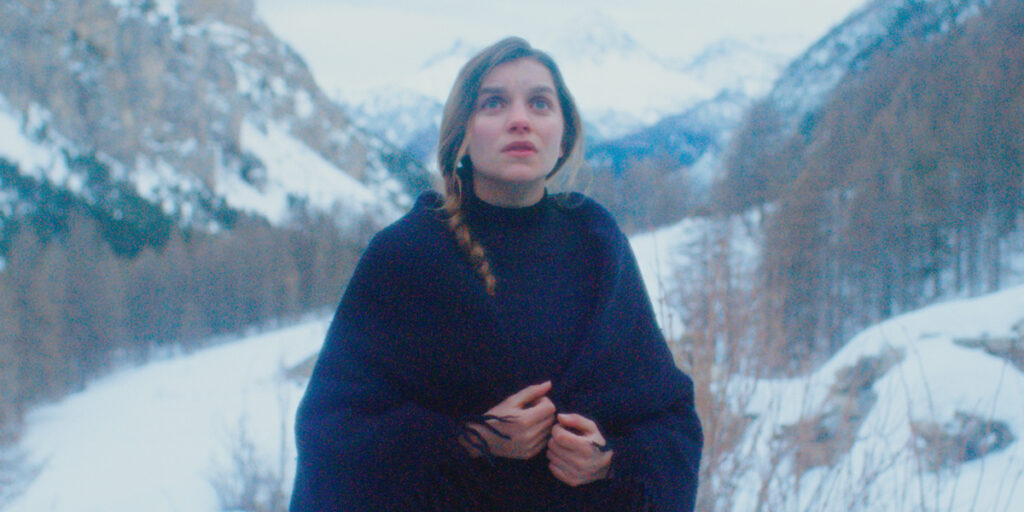
It’s 1899. The arrival of an idealistic teacher in a remote Alpine village unsettles the superstitious locals in this evocative, atmospheric slow burn.
“The Girl in the Snow is a stunning film that I admire for its immense beauty, its strong sense of the uncanny, and for the ways in which it grapples with the tensions between tradition and modernity. It fully transports us to the early 20th-century world of its Alpine hamlet setting and keeps us absorbed in the ever-unfolding mystery at the heart of the story.”
Ish – Directed by Imran Perretta
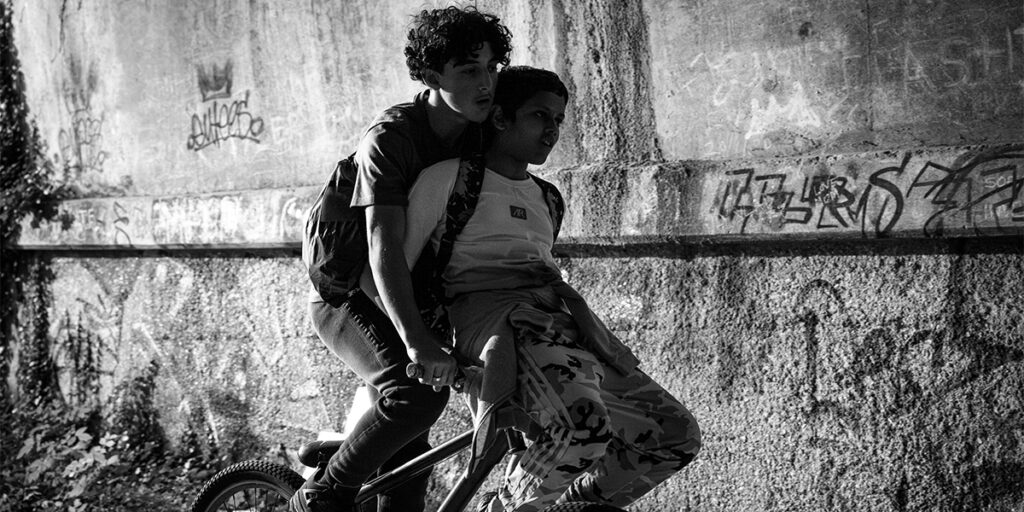
This sensitive, deeply felt tale of friendship follows twelve-year-old best mates Ish and Maram, whose bond is tested after a police stop-and-search.
“Ish represents the directorial debut of visual artist Imran Perretta, and the director’s rich visual style and singular perspective come together to craft a sensitive, thoughtful, and layered story of the uneasy journey from youth to adulthood. It’s one of the films in the festival this year that moved me both with its strong aesthetics and deep emotion.”
Luisa – Directed by Julia Roesler
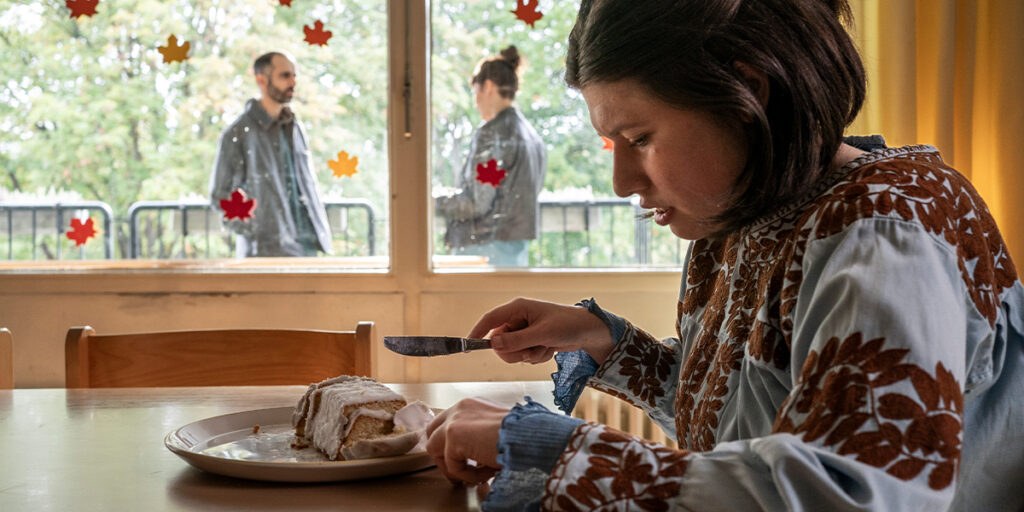
Moving into a group facility for adults with disabilities, Luisa is curious about her new life ahead — until it is discovered that she is pregnant.
“Luisa is a delicate and empowered film that tackles a difficult but important topic with perceptiveness and grace. The filmmaking team, who work as a collective, conducted extensive research and also worked collaboratively with a fully inclusive cast to tell a story that is defined by its delicate naturalism and deep empathy.”
Anthony Kaufman – Senior Programmer
The Beauty of the Donkey – Directed by Dea Gjinovci
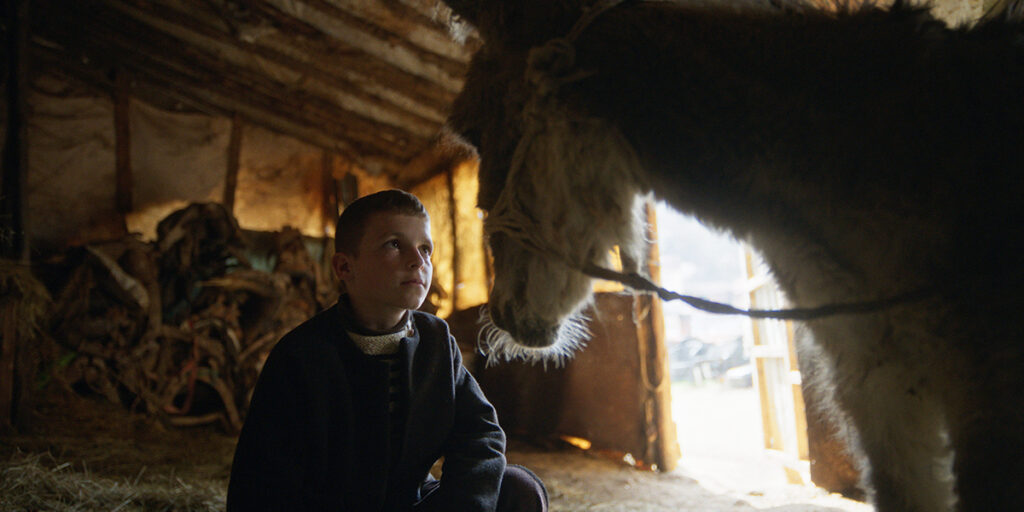
A filmmaker reenacts memories from her father’s childhood growing up as an Albanian in Kosovo to help him reconcile youthful traumas.
Bouchra – Directed by Orian Barki and Meriem Bennani
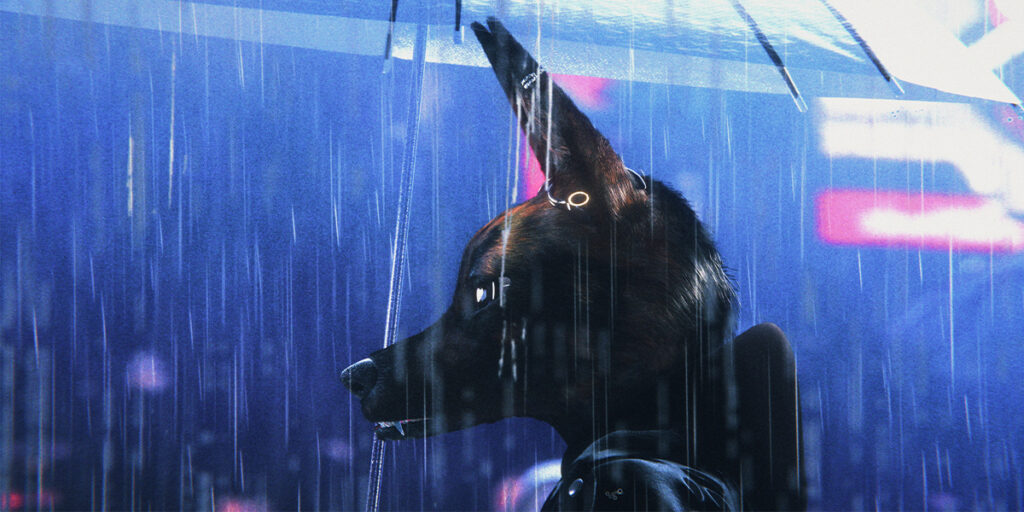
In this animated docu-fiction hybrid, a queer coyote named Bouchra sets out to make a film in order to make sense of her mother’s struggle to accept her sexuality.
“These two films couldn’t be more different in style or subject matter, but they actually share a similar modus operandi: The power of creativity as a tool for overcoming painful or challenging issues in one’s life. In The Beauty of the Donkey, it’s a documentary filmmaker who stages poetic scenes from her father’s youth to help him confront the past. In the animated Bouchra, a fantastical place where everyone is an animal, it’s also about a filmmaker who is making a film to help reconcile a long-buried conflict with her mother.”
Sam Flancher – Programmer
Brand New Landscape – Directed by Danzuka Yuiga
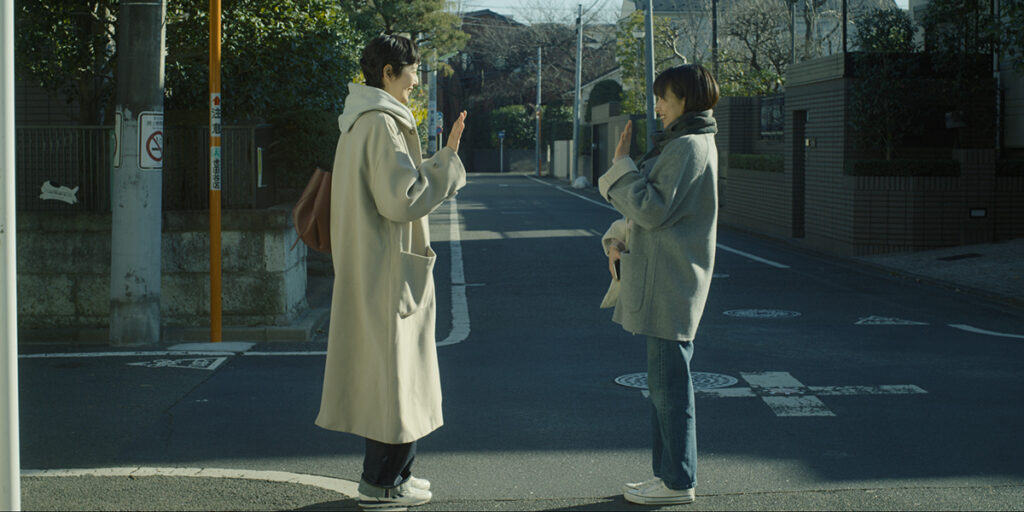
In Tokyo’s dynamic cityscape, two siblings reckon with the absence of their mother and the return of their estranged father, a renowned architect.
“Brand New Landscape is an understated, moving look at a fractured family trying to reconnect and heal their broken relationships. Featuring some of the year’s most breathtaking cinematography, the film captures an ever-changing Tokyo cityscape that seems to metaphorically mirror the struggles of its lead characters. Anchored by empathetic, deeply touching lead performances from its cast and a script that isn’t afraid to veer towards surreality, Brand New Landscape is a striking, unforgettable debut feature.”
Wind, Talk to Me – Directed by Stefan Djordjevic
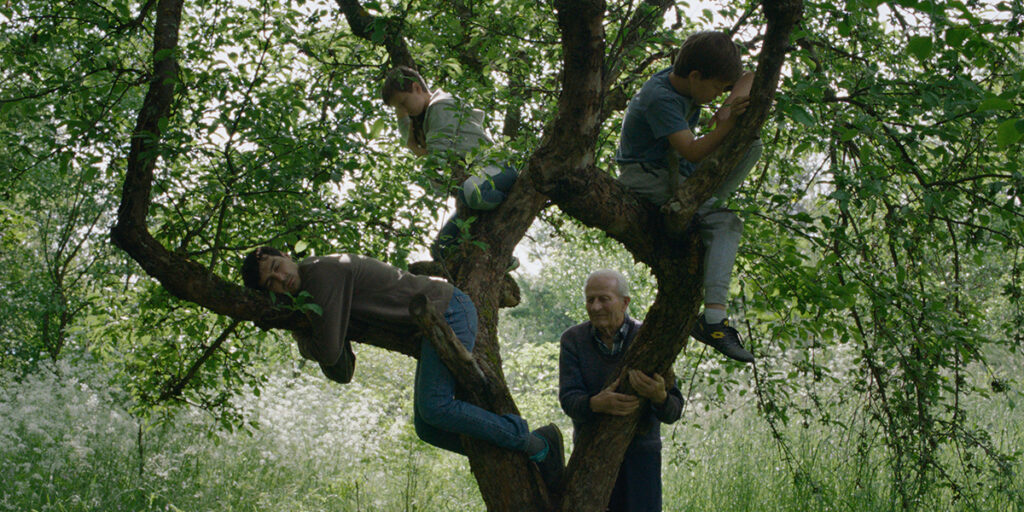
A filmmaker, enlisting the help of his winsome family, blends fiction and reality to create an intimate, tender monument to his late mother.
“Wind, Talk to Me is a quiet, contemplative film that features some of the year’s most breathtaking cinematic moments. The director, Stefan, casts himself in the lead role: a filmmaker named Stefan who’s determined to finish a documentary that honors the life of his late mother. With the help of his family (who all play themselves), he combines real-life documentary footage of his mother with staged, fictional scenes of his family members reminiscing about her life. The result is a cathartic, beautiful exploration of healing, memory, and cinema’s ability to connect us with those we’ve lost.”
Sophie Gordon – Programmer
EMI – Directed by Ezequiel Erriquez Mena
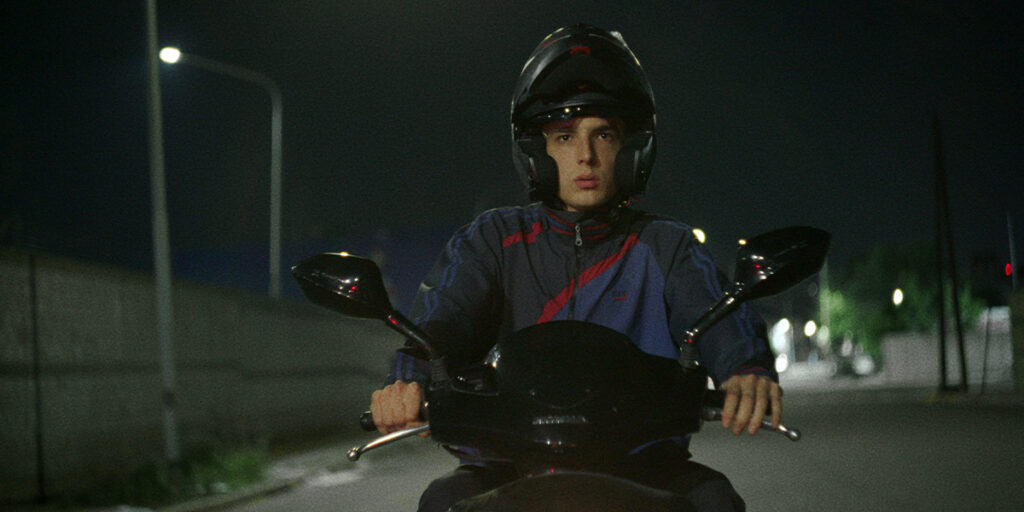
At 18, the warm and curious Emi is starting to spread his wings as he sets out in search of his biological parents and puzzles together the pieces of his own story.
“EMI snuck up on me with its subtlety, warmth, and unique narrative as an adoption story. It follows such a compelling young protagonist and the ways that he and many other characters find familial bonds in the most unexpected places.”
OCA – Directed by Karla Badillo
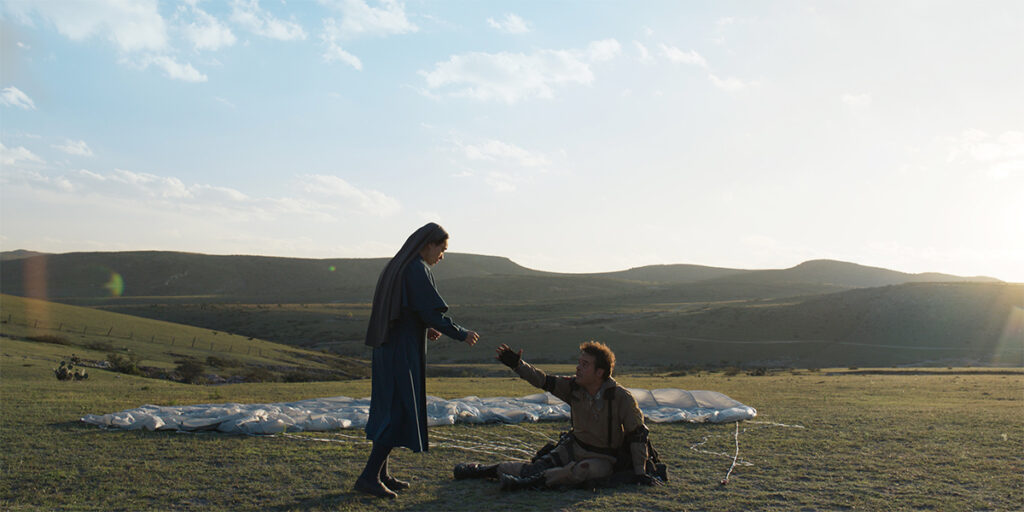
On a spiritual mission, a young nun haunted by prophetic dreams gets lost in a strange landscape, where extraordinary encounters change the course of her destiny.
“The thing that surprised me about OCA is really its final few minutes — one of the best endings I’ve seen this year. I was engaged and perplexed by it throughout the film as well; it’s an unconventional road movie as well as an earnest exploration of spirituality and faith, that mixes humor and magical realism to create a uniquely atmospheric experience.”
Christy LeMaster – Lead Shorts Programmer
Make No Mistake: These are the Glory Days (in Shorts 4: City & State) – Directed by Texas Smith
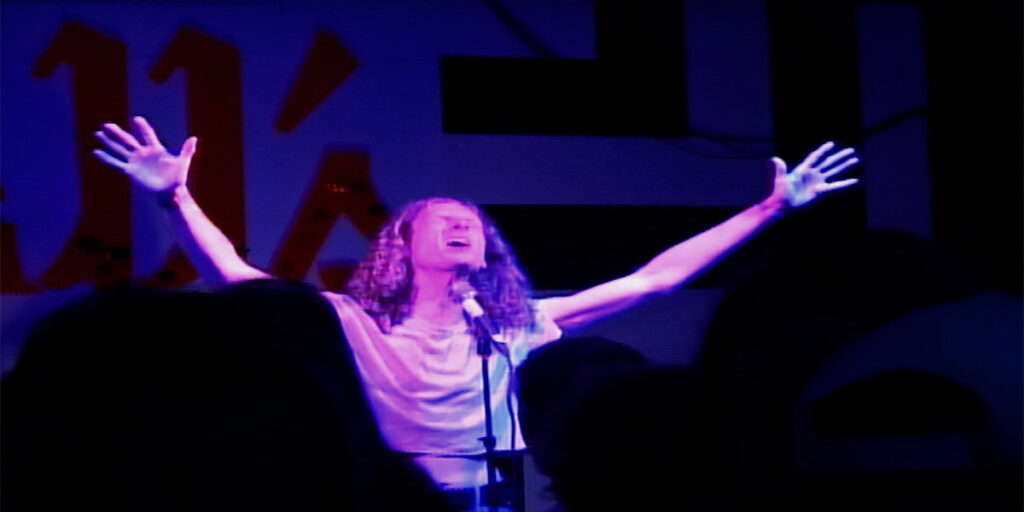
Make No Mistake explores moments of clarity, belonging, and acceptance as the band HOME IS WHERE tours the U.S. as an openly trans group with an openly trans audience.
“Our City & State program is always a highlight of the festival. With sell-out houses full of supportive patrons, every year we get a sample of how much talent and creativity reside in our state. We do two screenings of the program, one presented with open captions. It is one of the greatest joys of our work to celebrate our local filmmakers. The artists in this region are often underestimated, and this program is chock full of compelling stories and filmmaking craft enough to do any place proud. Each screening has a robust Q&A afterward, with filmmakers filling the stage. The enthusiastic audiences light up the theaters with energy and joy.
Make No Mistake: These are the Glory Days is the last film in the program, and Texas Smith, the director, captures all of the ups and downs of a trans-led band on a scrappy tour. Texas works in collaboration with his subjects, and the last scene in this doc breaks something hopeful wide open, a much-needed moment of trans power in a time when there are so many forces gathering to tear trans people down.”
On the Mat Outside My Door (in Shorts 9: Family Friendly Animation) – Directed by Antje Heyn
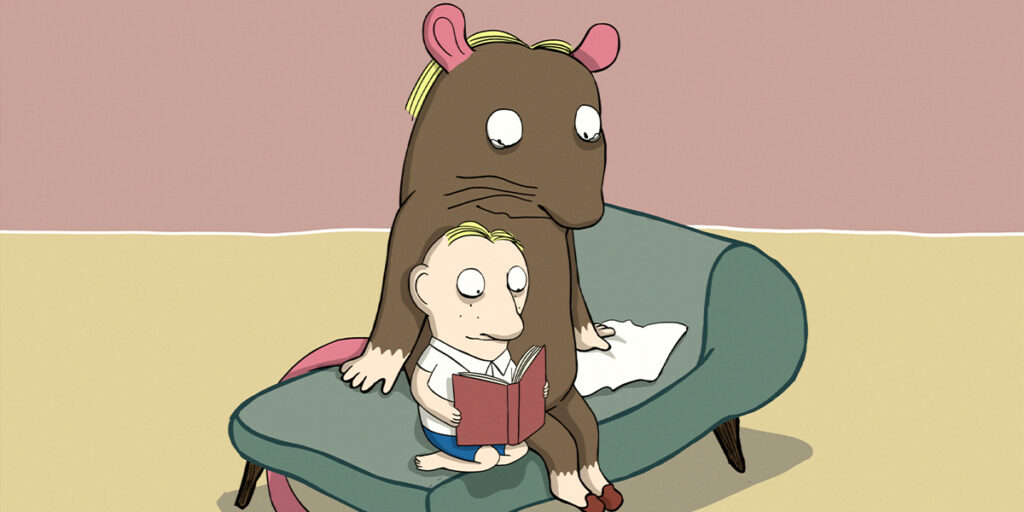
On the Mat Outside My Door is a poem to an intrusive and ultimately lovable rat.
“The Family Friendly Animation program is one of my favorite screenings of the year. The animation in this program includes shorts from Brazil, Germany, Japan, Switzerland, and the U.S. and is recommended for people 8 years old and older. Presented as a relaxed screening, meaning that it is completely acceptable if a younger cinema enthusiast needs to ask a question or get up and walk around to get a few wiggles out. These shorts are inventive and funny and employ a wide range of animation styles, from the clever stop motion of a kitchen tuna can to the painterly style of a whale on the beach.
One of the most delightful shorts in the program is On the Mat Outside My Door. Rhymed couplets express the irritation caused by an uninvited rat guest. Based on a book by Nadia Budde, this short humorously advocates for sharing space and time with others.”
all the love i could handle (in Shorts 6: Departures) – Directed by Ruby Rose Collins
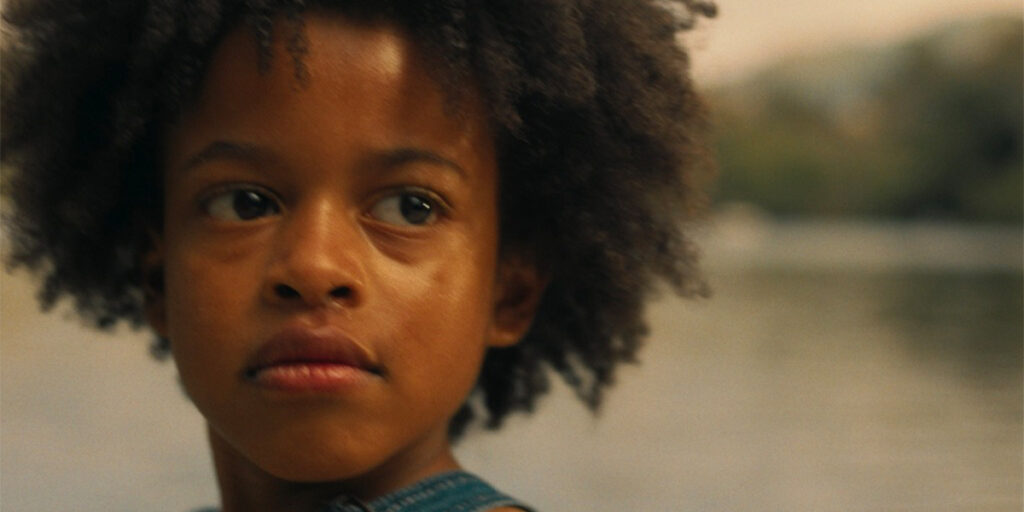
all the love i could handle tells the story of a mother struggling to balance her artistic career with parenthood.
“The Departures program features shorts by filmmakers who are making their festival debut and have created shorts that aren’t afraid to try something new. In all the love i could handle, Ruby Rose Collins grapples with the legacy of her grandmother, Kathleen Collins, a Black independent writer and filmmaker working in the 1970s and 80s. Told from the point of view of her children, this short expertly captures the magical and sometimes scary world of being a kid. The striking cinematography in this short moves from peaceful to frenetic as the story unfolds.”
Nicola McCafferty – After Dark Programmer
Mārama – Directed by Taratoa Stappard
Mary’s pursuit of the truth about her Māori heritage sends her down a blood-soaked path of righteous retribution in this striking gothic horror.
The Holy Boy – Directed by Paolo Strippoli
In this moving horror film, a teen boy’s embrace promises an end to pain — until the dark side of his power comes into disturbingly detailed focus.
Coyotes – Directed by Said Zagha
While driving home alone on a deserted West Bank road, a Palestinian woman’s flat tire forces her to accept the help of a stranger with unknown intentions.
“These films embody the best of what the horror genre has to offer: stunningly shot stories that amplify and distort horrific elements of our real-world circumstances in order to make them visible and intelligible in new ways. Alongside gorgeous period costumes, broody cinematography, and strong performances, Mārama offers a scathing critique of and cathartic response to the colonial violence that undergirds the Victorian gothic and echoes throughout Western culture. The Holy Boy uses its premise of a teenage savior with a supernatural gift that doubles as a curse to contemplate the necessary places of pain, loss, and longing in our lives. And Coyotes, from the After Dark Shorts program, comes to us at a vital moment, personalizing the ongoing genocide through a harrowing story about a Palestinian surgeon whose nighttime commute is disrupted by Israeli soldiers and a flat tire.”
Joyy Norris – Black Perspectives Programmer
Pasa Faho – Directed by Kalu Oji
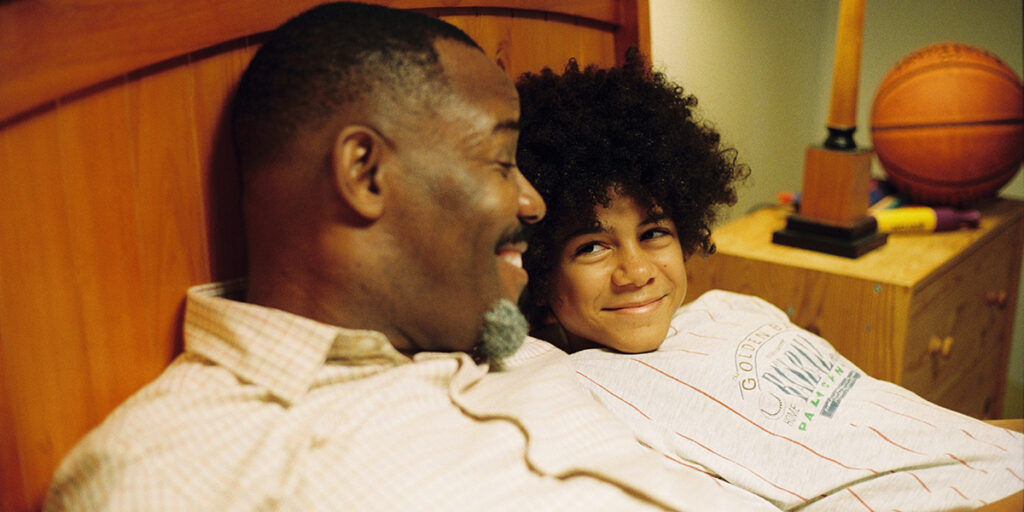
A Nigerian shoe salesman in Australia juggles fatherhood, fading traditions, and a changing world when his adolescent son comes to live with him full-time.
“It’s always intriguing to witness the Black experience in spaces and places we rarely get to see and how the maintaining of community and self is retained.”
True North – Directed by Michèle Stephenson
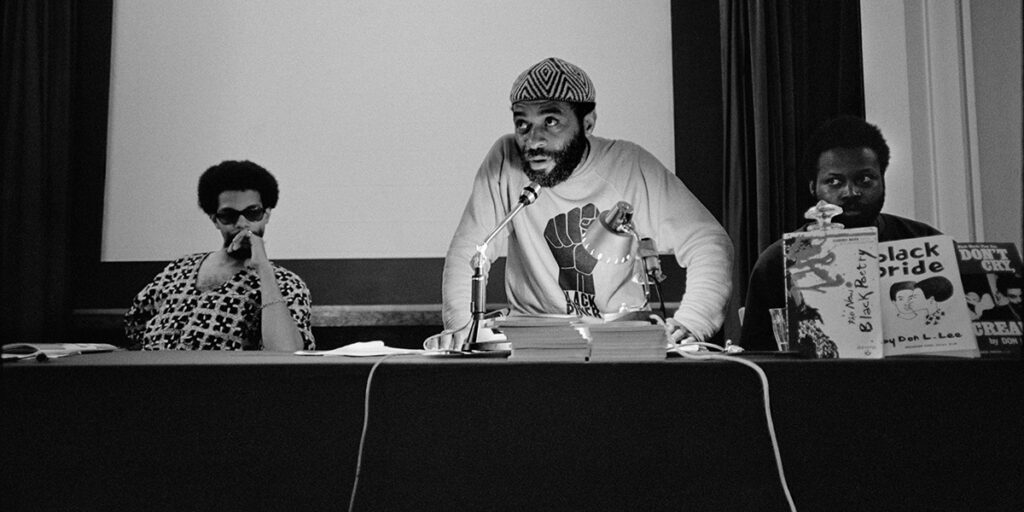
Focusing on the 1969 student protests at Montreal’s Concordia University, this powerful film confronts the buried legacy of racism in Canada.
“In recent years, Canada’s reputation of politeness has been racism and xenophobia has been coming to light.”
Cotton Queen – Suzannah Mirghani
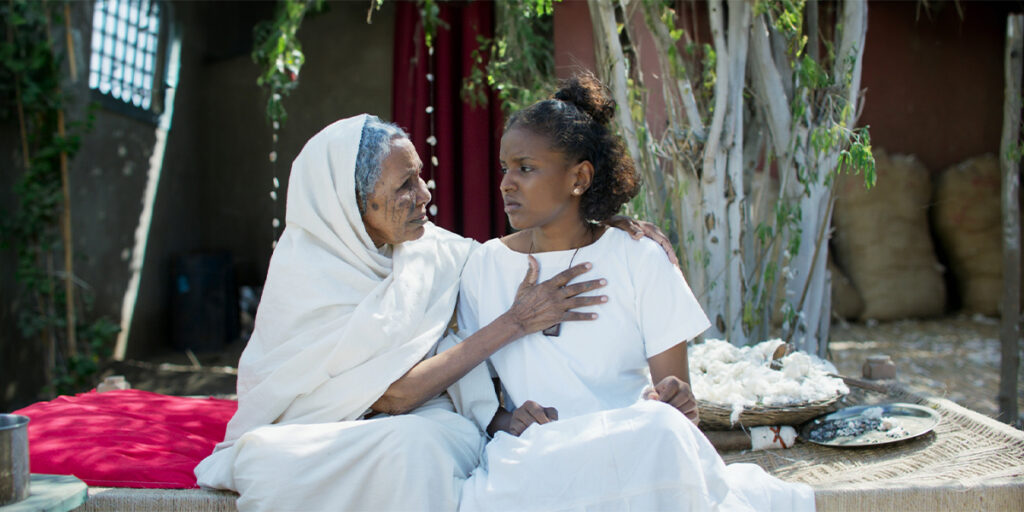
In a matriarchal cotton-rich Sudanese village, teenage Nafisa is at the nexus of a power play that will determine the community’s future.
The 61st Chicago International Film Festival runs October 15-26, 2025.
Tickets are on sale now, starting at $25 for a general screening ticket. Passes are also available starting at $220 for nonmembers and $180 for members.
See the complete film list and schedule.
How to Help
The Chicago International Film Festival and various programs flourish under the auspices of Cinema/Chicago — a nonprofit cultural and educational organization dedicated to bridging the gap between people of diverse cultures and access to the art of film.
Be part of a community of supporters who believe in the power of cinema and the arts to make a difference that resonates long after the credits roll. All donations will support Cinema/Chicago’s public and education programs: Chicago International Film Festival, Summer Screenings, Community Cinema, CineYouth Festival, Chicago Industry Exchange Lab (CIX: Lab), and Accessibility at the Festival.

More from Better
- Penelope Steiner’s Lifelong Love of Film Sparks $2M Gift Fueling Chicago International Film Festival’s 60th Year and Beyond
- John C. Reilly Dedicates Career Achievement Award to His ‘Sweet Home, Chicago,’ Commends Chicago International Film Festival for Helping ‘Keep the Flame of Film Alive’
- Kathryn Hahn Introduces New ‘Knives Out’ Film ‘Glass Onion’ and Receives Career Achievement Award at Chicago International Film Festival
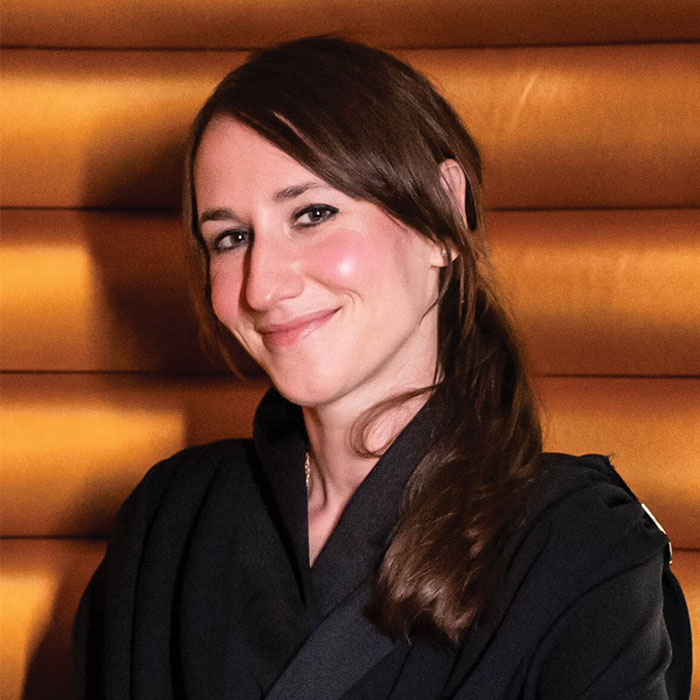
Brooke McDonald is the editor in chief of Better Magazine. She regularly reports on entertainment, theme parks, and travel and her work has appeared in Insider, The Points Guy, Parents, TravelPulse, and more. Her favorite nonprofits to support include SeaLegacy and the Vitalogy Foundation Follow her on Instagram @brookegmcdonald, Threads @brookegmcdonald, Bluesky, and X @BrookeGMcDonald.
